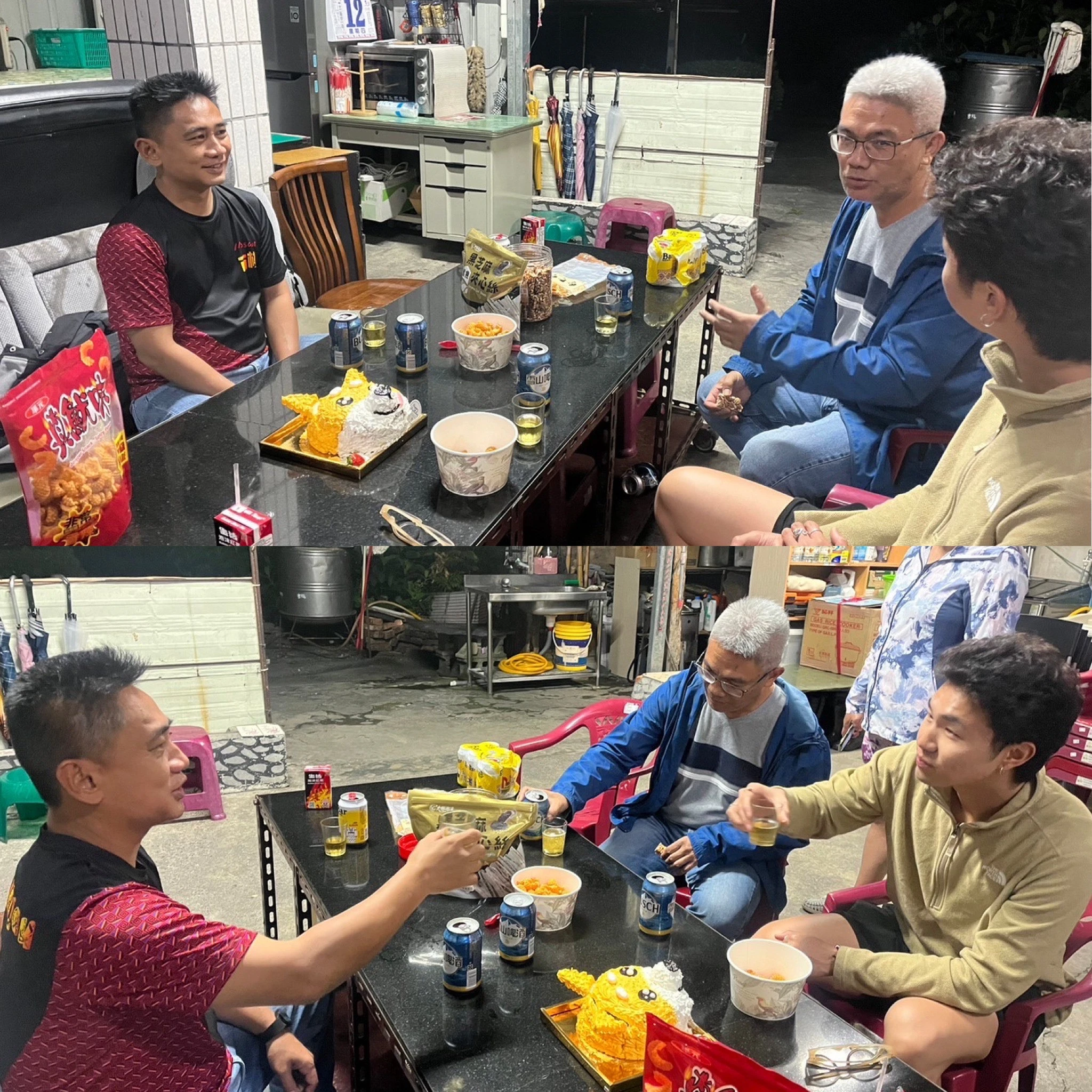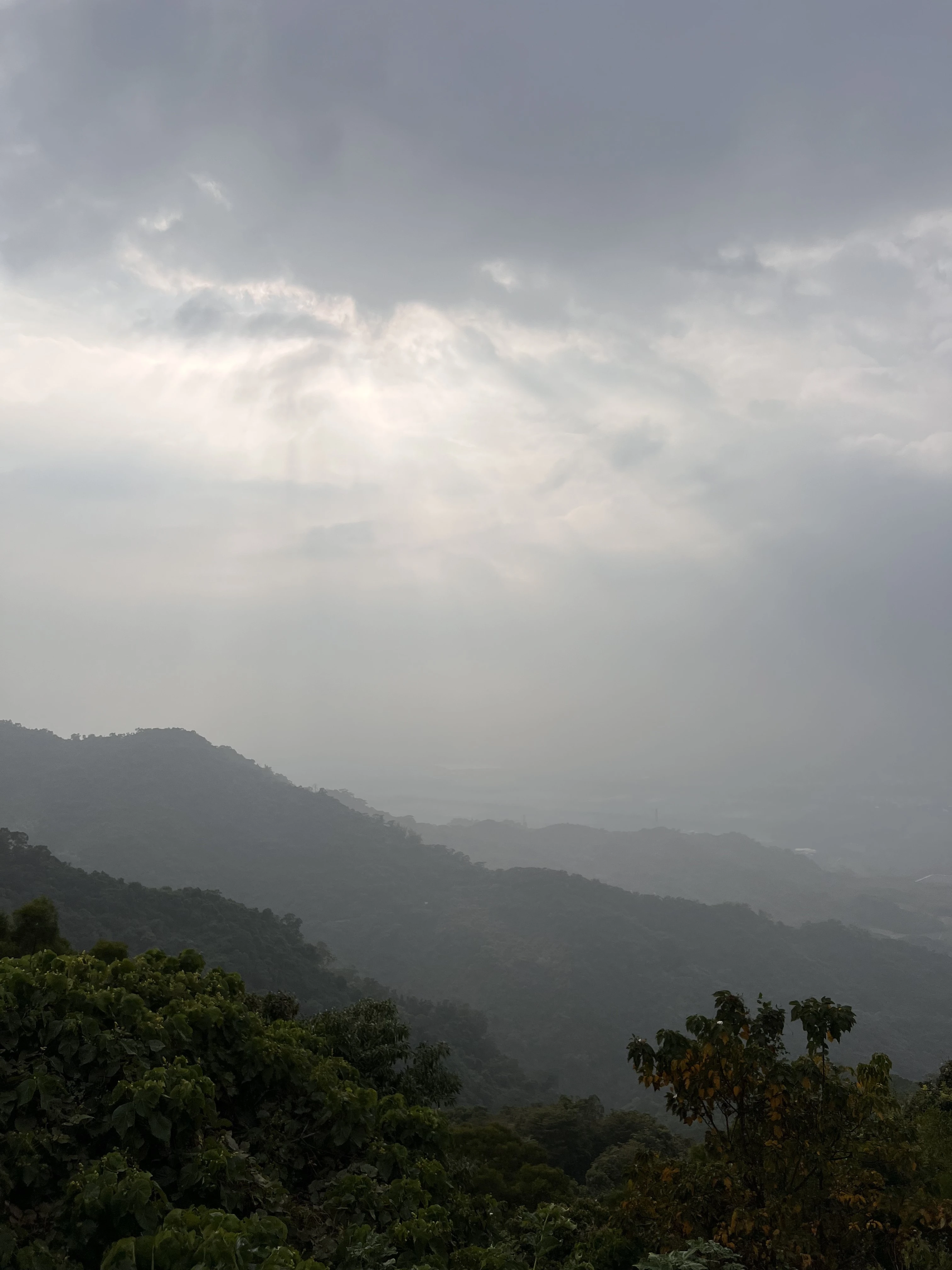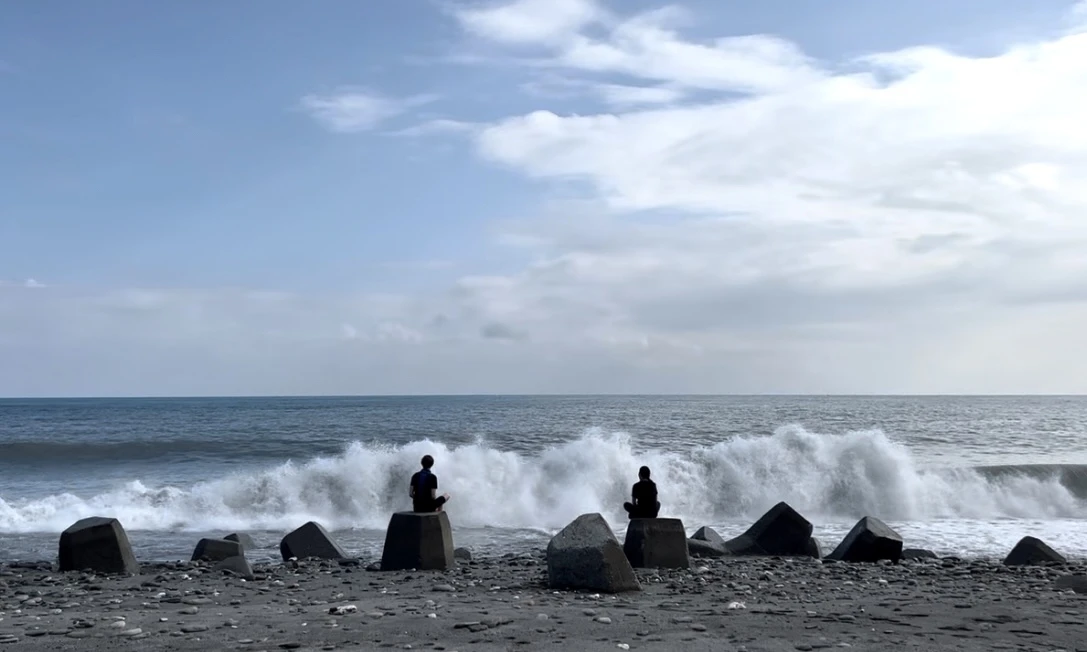Hello from Mae Wang District, Thailand--
Welcome to the first newsletter of 2023. After three wonderful weeks in Taiwan, I now find myself teaching English on the rural outskirts of Chiang Mai. I have slowed my external traveling pace in hopes of diving even deeper internally.
Thank you to all of you readers, old and new, for being here. I'm excited to get back into the swing of creation, and as always, I love hearing your thoughts and comments and questions. Before wrapping up my travels later this year, I hope we can learn a lot together.
The bell rang. A pleasant pentatonic melody echoed through the halls, filling every classroom with a much warmer, more inviting tone than the sterile DIIIIING I was used to from my own high school days in the suburbs of Chicago.
Through a friend of a friend, I was staying in Pingtung with a wonderful aboriginal family of Taiwan whose ancestors had been indigenous to the island nation for thousands of years. My host mom, Su Ling, was a cheery, hilarious woman with a kind, round face and worked as a teacher at the local high school. Knowing next to nothing about me beyond our slew of back-and-forth texts on a local messaging app, she and her family generously welcomed me into their home.
After a few days observing and fully immersing myself in rural Taiwanese life—devouring braised pig’s feet, setting off on morning runs between lush mountains, and even chatting with the village chief about his love story over shots of locally brewed rice millet—I finally found myself with a moment of reflective quiet in the high school library. Su Ling, busy teaching her students, left me to my own devices. With a still smoking cup of coffee nearby, I pulled out my journal and scribbled away, trying to make sense of everything that was happening.

Being introduced to the village chief and trying to keep up.
“Marissa,” a young Virginia native and resident English teacher who had been placed at the school as a Fulbright Fellow, waltzed in. Su Ling introduced us just the previous evening over a hotpot dinner with some of the other teachers. As the only two Westerners in a many-mile radius, we quickly bonded and exchanged travel stories, saying what we thought would be a permanent goodbye at the end of the night.
Oh my gosh! What are you doing here? she asked, plopping her teaching materials down on a desk near mine.
Honestly, I don’t really know, I confessed. She laughed and sat down, swiveling her chair.
Well, this is perfect because I wanted to chat more about your research. I know you’re studying love and marriage, but like, what’s your central question? What exactly are you researching?
I’m really interested in what keeps people together in a healthy, thriving relationship over the course of a lifetime—like, why some relationships can really thrive while others fade away, I replied, hoping that I wasn’t coming off like too much of an ass.
Whoa, she said, her eyebrows arching. That’s so interesting. How do you actually do the research?
It depends--sometimes, I stay with families and observe the day in, day out nuances of their lives...other times, I meet with locally based couples therapists. I try to understand each country at a really high level--sociologically, culturally, historically--to better inform my interviews. The research is different in each place, I explained.
But why did you choose this topic?
I put my pen down. Um, my parents are divorced.
Ah, she replied, gently nodding her head. An analogue clock lightly ticked nearby. But do you really believe in marriage?
I looked at her. I mean, yeah, I do.
Hmm, she replied. I don’t think I really believe in it.
Are your parents together?
HA! No, she said, throwing her head back, smiling with acknowledgement at what I was implying. No, they’re not. They’re divorced and had a really shitty relationship.
Ah, I nodded. I sipped from my coffee. What don’t you believe about it?
I mean, I just don’t know if it’s like, really necessary in modern society, you know? To stay legally bonded to someone for the rest of your life. Like why would I willingly put myself in that position? Not that I don’t want partnership. I’ve been dating this guy for a year now, and I think he’s a really good person. But…I don’t see a need to get married. She paused. And also, I just really couldn't end up like my parents.
And there it was.
Because of what you saw growing up? I asked softly.
Yes, she said.
And what if you saw something different?
I mean, then maybe I would think differently about it. I don’t know, she sighed, leaning back. Yeah, actually, I do think things might be different. But there’s no use in even thinking about that possibility now, like, I’m not going to get a chance to live with some healthy couple and learn about what that looks like. I mean, I’m 23 already. There just won’t be a chance like that anymore.
She smiled. Not everyone can be like you, she said.
 Pingtung, Taiwan.
Pingtung, Taiwan.
In the USA, where 40-50% of first marriages end in divorce, it’s quite easy to minimize the phenomenon’s devastating effects, to conflate its frequency with non-harm. We may think, Well, if it happens so often and to so many people, then maybe it’s not so bad. This story is so prevalent, in fact, that even children of divorced families themselves may brush off their parents’ separation as a sort of unfortunate inevitability, a mere artifact of the demands of modern society that they somehow just need to “get over.”
This narrative, IMHO, is extremely harmful. It minimizes and robs these individuals of the need to fully process what was likely received in their young bodies as a deep-rooted trauma.
Because as these children grow up and adjust into their adult lives, they may truly believe that they’ve moved on from the divorce—they think, It was so long ago, after all. And yet, many are like Marissa who discard the concept of marriage altogether, casting aside monogamy as an archaic structure ill-suited to the here and now, perhaps even declaring that marriage “just isn’t for me.”
Don't get me wrong--I do believe that there are people who happily decide to not marry. And Marissa made some good points. Many historians believe that marriage was initially created as a political and economic alliance between two families. Hell, even monogamy was only introduced as the guiding principle for Western marriages sometime between the sixth and ninth centuries. What's the point, then, of adhering to something so ancient now?
But the validity of Marissa's arguments can obfuscate a more core, underlying fear—namely, I can’t end up like my parents. Masked by layers of intellectual justification and rejection of the status quo, children of divorce are not always willing to admit—or perhaps not even consciously aware of--the power that their parents’ separation still holds over their lives and romantic decisions.
Let us normalize, instead, labeling divorce for what it is: a terrible, ruinous event for children that can scab over with time, but still leaves a scar. A trauma that--though many rightfully believe to be one of the best decisions of their lives--requires intentional care. And from this place of awareness, this conscious acceptance for what has happened, let us start walking on the arduous, hopeful path of true healing.
